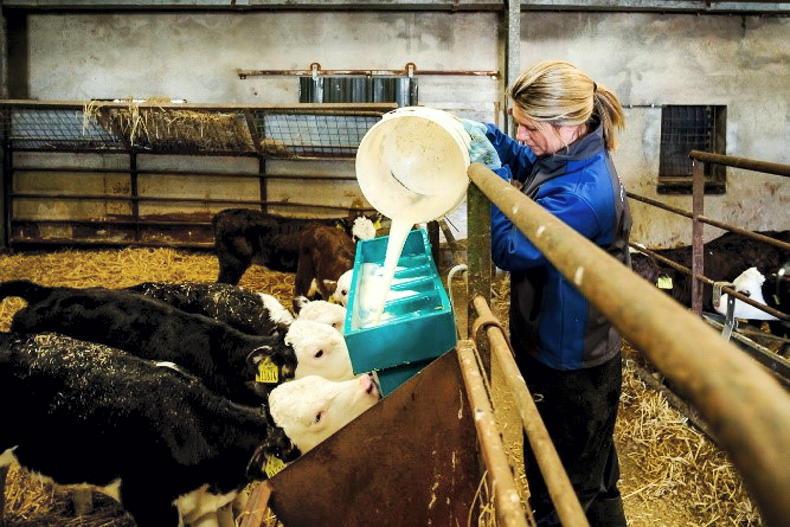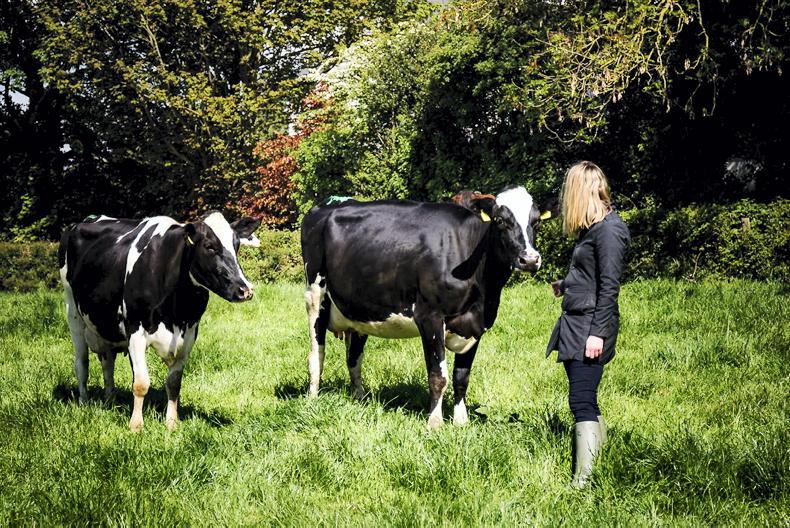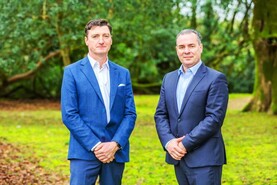The term ‘sustainability’ is often likened to a three-legged stool: the economic, environmental and social ‘legs’ of which are all needed if we are to ‘stay upright’.
When applied to farming, economic sustainability – farming as a resilient, viable business – is a well-versed topic, while environmental sustainability has dominated recent public discourse and policy. But ‘social sustainability’ – ranging from farm family health and wellbeing to gender equality – seems somewhat of a ‘poor relation’.
This is surprising, perhaps, given that ‘improving the social sustainability of private producers’ is listed as a key goal in Food Vision 2030, with 25 actions covering themes from generational renewal to diversity and inclusion.
And surprising too given, for example, the implications for Ireland’s ‘farm family’ model of the increasing competition for farmland for forestry, wind and solar energy, dairy expansion and even ‘rewilding’. Or the ongoing technological innovations and bureaucratic burdens which may favour bigger farm businesses but already present a challenge to many older farmers and smallholders.
To find out more, I recently visited Teresa Roche, a woman particularly well-positioned (as newly appointed chair of IFA’s Farm Family & Social Affairs Committee) and well-qualified – as I was to learn – to tease out these multifaceted but critical issues.
Farming heritage
Teresa is a qualified nurse, practicing farmer and acclaimed entrepreneur, probably best-known as founder of Kylemore Farmhouse cheese (www.kylemorefarmhousecheese.com). Her fascinating backstory includes several years nursing among aboriginal communities in the Australian outback, a job which she loved. However, a planned two-week visit home in 2016 rekindled a deep connection with her farming heritage, resulting in an ‘unplanned’ return to her home place.
The Roches’ fourth generation family farm, with its 69ha grazing platform, is a busy place, with long working days and an ‘all-hands-on-deck’ approach required just to keep things ticking over. Teresa’s father Bertie (himself an award-winning dairy farmer) and mother Julie milk the 90-strong closed herd of pedigree Holstein Friesian cows, and hand-feed the offspring, the male calves reared on-farm to 16 months.
When reflecting on the future viability of the farm and the cherished pedigree herd, Teresa concluded that diversification was vital.
In this context, cheese made most sense as it capitalised on the farm’s output and its location in Kylemore, close to the
historic monastic village of Abbey.
So, after a trip to the Swiss Alps to learn about cheesemaking, and with help from her brother Brian (who has an adjacent agri-engineering business) to renovate an old sheep shed and manufacture a cheese press, she founded Kylemore Farmhouse Cheese in 2017.

Teresa feeding some of the young calves.
Today, Teresa produces seven tonnes annually of delicious ‘nutty and buttery’ award-winning mountain hard cheese wheels. The business absorbs and adds value to 10% of the farm’s milk output.
Farmer outreach projects
Having returned home, as well as helping on the farm and cheesemaking, Teresa also continued to deploy her nursing skills through several farmer outreach projects where she covered issues from mental health to skin cancer to heart disease.
She was astonished by the demand for such services and recognised the need to address these issues more strategically, which brought her into contact with the IFA.
Her energy and enthusiasm eventually saw her elected as chair of the Farm Family & Social Affairs Committee, succeeding current IFA vice-president Alice Doyle.
Teresa lists her key priorities in the new role as farmers’ physical and mental health, succession planning, pensions, and advocating for women in farming. She speaks about these issues with passion, insight and purpose, having a deep well of experience to draw on.
She wants policies that will make farm succession a more attractive prospect for all involved, and wants to see more recognition – formally and informally – of the enormous role that women continue to play at every level in farming and rural development.
With her nursing background, Teresa has a particular affinity with issues affecting farmers’ health and wellbeing. She lists challenges like isolation and loneliness, stress caused by poor weather, fodder crises and financial pressure, farm accidents and chronic health issues.
Restrictions
She finds it “shameful” how environmental restrictions have been placed on farmers and is frustrated by the anomalies within many schemes which undermine their stated purpose of supporting a just transition.

Teresa Roche with some of the Kilmora Pedigree Holstein Friesian herd.
While ‘social sustainability’ may be a vague concept, the Roches’ farm makes it real. During COVID-19, Teresa opened a ‘farm shop’, selling Kylemore cheese and local produce, and also dispensing barista coffee, welcoming conversation and good company. Valued employees (including agribusiness student Katie from Mountbellew College and assistant manager, Jasmin from Austria), community supporters and relatives all assist at busy times and make the shop and farmyard a hive of activity, in spite of the remote location.
In addition, international guests, Holstein Friesian enthusiasts and agri students regularly visit, all valuing the authenticity and hospitality on offer.
Teresa herself is engaged in various community initiatives from renewable energy to local heritage so, when you add it all up, this family farm enterprise offers way more of a ‘social dividend’ than we usually give such enterprises credit for.
Whatever her challenging new role brings, it’s very clear that Teresa in turn will bring a lot of commitment, energy and charisma to it.
With her natural empathy and entrepreneurial spirit, she certainly is well-qualified. Hopefully she can advocate for meaningful policies, research and practice to help keep the aforementioned ‘sustainability stool’ balanced at this critical juncture of challenge, opportunity and change for Irish farming.
The term ‘sustainability’ is often likened to a three-legged stool: the economic, environmental and social ‘legs’ of which are all needed if we are to ‘stay upright’.
When applied to farming, economic sustainability – farming as a resilient, viable business – is a well-versed topic, while environmental sustainability has dominated recent public discourse and policy. But ‘social sustainability’ – ranging from farm family health and wellbeing to gender equality – seems somewhat of a ‘poor relation’.
This is surprising, perhaps, given that ‘improving the social sustainability of private producers’ is listed as a key goal in Food Vision 2030, with 25 actions covering themes from generational renewal to diversity and inclusion.
And surprising too given, for example, the implications for Ireland’s ‘farm family’ model of the increasing competition for farmland for forestry, wind and solar energy, dairy expansion and even ‘rewilding’. Or the ongoing technological innovations and bureaucratic burdens which may favour bigger farm businesses but already present a challenge to many older farmers and smallholders.
To find out more, I recently visited Teresa Roche, a woman particularly well-positioned (as newly appointed chair of IFA’s Farm Family & Social Affairs Committee) and well-qualified – as I was to learn – to tease out these multifaceted but critical issues.
Farming heritage
Teresa is a qualified nurse, practicing farmer and acclaimed entrepreneur, probably best-known as founder of Kylemore Farmhouse cheese (www.kylemorefarmhousecheese.com). Her fascinating backstory includes several years nursing among aboriginal communities in the Australian outback, a job which she loved. However, a planned two-week visit home in 2016 rekindled a deep connection with her farming heritage, resulting in an ‘unplanned’ return to her home place.
The Roches’ fourth generation family farm, with its 69ha grazing platform, is a busy place, with long working days and an ‘all-hands-on-deck’ approach required just to keep things ticking over. Teresa’s father Bertie (himself an award-winning dairy farmer) and mother Julie milk the 90-strong closed herd of pedigree Holstein Friesian cows, and hand-feed the offspring, the male calves reared on-farm to 16 months.
When reflecting on the future viability of the farm and the cherished pedigree herd, Teresa concluded that diversification was vital.
In this context, cheese made most sense as it capitalised on the farm’s output and its location in Kylemore, close to the
historic monastic village of Abbey.
So, after a trip to the Swiss Alps to learn about cheesemaking, and with help from her brother Brian (who has an adjacent agri-engineering business) to renovate an old sheep shed and manufacture a cheese press, she founded Kylemore Farmhouse Cheese in 2017.

Teresa feeding some of the young calves.
Today, Teresa produces seven tonnes annually of delicious ‘nutty and buttery’ award-winning mountain hard cheese wheels. The business absorbs and adds value to 10% of the farm’s milk output.
Farmer outreach projects
Having returned home, as well as helping on the farm and cheesemaking, Teresa also continued to deploy her nursing skills through several farmer outreach projects where she covered issues from mental health to skin cancer to heart disease.
She was astonished by the demand for such services and recognised the need to address these issues more strategically, which brought her into contact with the IFA.
Her energy and enthusiasm eventually saw her elected as chair of the Farm Family & Social Affairs Committee, succeeding current IFA vice-president Alice Doyle.
Teresa lists her key priorities in the new role as farmers’ physical and mental health, succession planning, pensions, and advocating for women in farming. She speaks about these issues with passion, insight and purpose, having a deep well of experience to draw on.
She wants policies that will make farm succession a more attractive prospect for all involved, and wants to see more recognition – formally and informally – of the enormous role that women continue to play at every level in farming and rural development.
With her nursing background, Teresa has a particular affinity with issues affecting farmers’ health and wellbeing. She lists challenges like isolation and loneliness, stress caused by poor weather, fodder crises and financial pressure, farm accidents and chronic health issues.
Restrictions
She finds it “shameful” how environmental restrictions have been placed on farmers and is frustrated by the anomalies within many schemes which undermine their stated purpose of supporting a just transition.

Teresa Roche with some of the Kilmora Pedigree Holstein Friesian herd.
While ‘social sustainability’ may be a vague concept, the Roches’ farm makes it real. During COVID-19, Teresa opened a ‘farm shop’, selling Kylemore cheese and local produce, and also dispensing barista coffee, welcoming conversation and good company. Valued employees (including agribusiness student Katie from Mountbellew College and assistant manager, Jasmin from Austria), community supporters and relatives all assist at busy times and make the shop and farmyard a hive of activity, in spite of the remote location.
In addition, international guests, Holstein Friesian enthusiasts and agri students regularly visit, all valuing the authenticity and hospitality on offer.
Teresa herself is engaged in various community initiatives from renewable energy to local heritage so, when you add it all up, this family farm enterprise offers way more of a ‘social dividend’ than we usually give such enterprises credit for.
Whatever her challenging new role brings, it’s very clear that Teresa in turn will bring a lot of commitment, energy and charisma to it.
With her natural empathy and entrepreneurial spirit, she certainly is well-qualified. Hopefully she can advocate for meaningful policies, research and practice to help keep the aforementioned ‘sustainability stool’ balanced at this critical juncture of challenge, opportunity and change for Irish farming.








 This is a subscriber-only article
This is a subscriber-only article











SHARING OPTIONS: